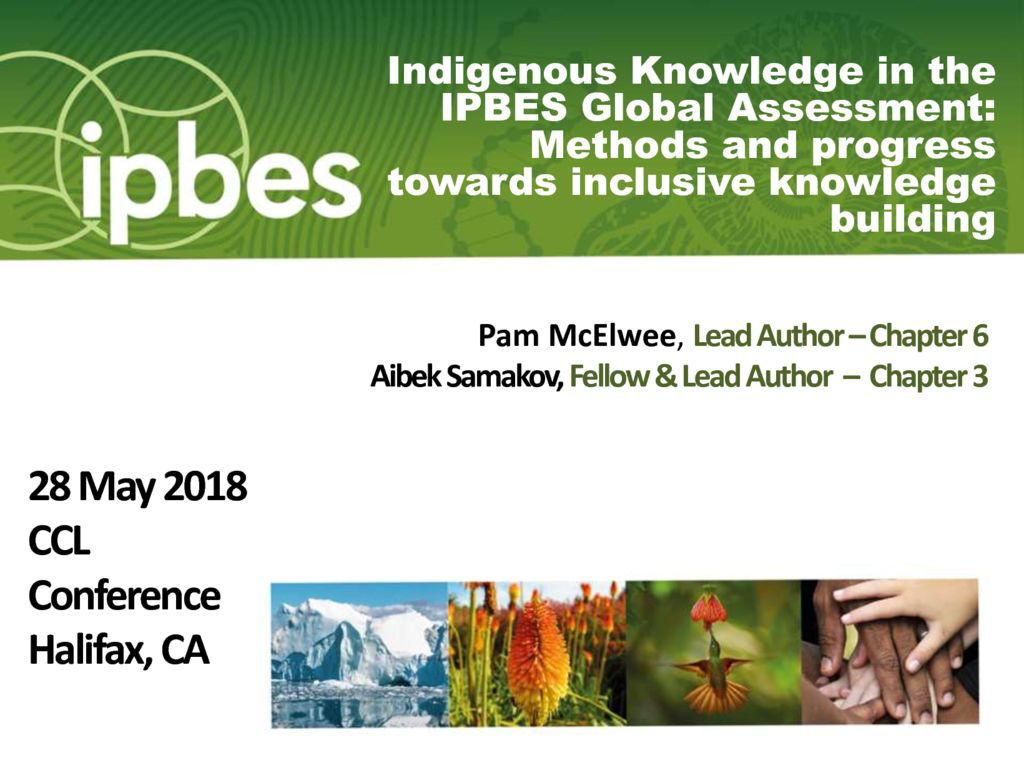04 Mar Engaging Indigenous and Local Knowledge and Peoples in the IPBES Global Assessment
There have been many calls for greater inclusion of Indigenous and Local Knowledge (ILK) in global environmental policy, but the difficulties of bridging epistemological differences between science and ILK while addressing existing power asymmetries has proved elusive. The Intergovernmental Science-Policy Platform on Biodiversity and Ecosystem Services (IPBES) has been engaged in a Global Assessment for the past three years that has developed one of the first planetary-scale mechanisms for operationalizing ILK in science assessments. The IPBES Global Assessment ILK strategy has included a Multiple Evidence Base approach, which puts ILK on equal footing with other types of data; has engaged in a broad series of Dialogue Workshops and consultations allowing for constructive engagement with established networks of ILK-holders; and has solicited through an online survey of case studies and a systematic literature review documentation of large-scale patterns and trends in ILK. Despite these efforts, challenges to this inclusionary approach have included how to retain the place-based, culturally-specific facets of local knowledge while yet integrating this into global surveys of environmental change and response.



